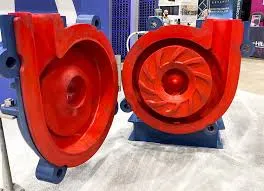Icelandic
- Afrikaans
- Albanian
- Amharic
- Arabic
- Armenian
- Azerbaijani
- Basque
- Belarusian
- Bengali
- Bosnian
- Bulgarian
- Catalan
- Cebuano
- Corsican
- Croatian
- Czech
- Danish
- Dutch
- English
- Esperanto
- Estonian
- Finnish
- French
- Frisian
- Galician
- Georgian
- German
- Greek
- Gujarati
- Haitian Creole
- hausa
- hawaiian
- Hebrew
- Hindi
- Miao
- Hungarian
- Icelandic
- igbo
- Indonesian
- irish
- Italian
- Japanese
- Javanese
- Kannada
- kazakh
- Khmer
- Rwandese
- Korean
- Kurdish
- Kyrgyz
- Lao
- Latin
- Latvian
- Lithuanian
- Luxembourgish
- Macedonian
- Malgashi
- Malay
- Malayalam
- Maltese
- Maori
- Marathi
- Mongolian
- Myanmar
- Nepali
- Norwegian
- Norwegian
- Occitan
- Pashto
- Persian
- Polish
- Portuguese
- Punjabi
- Romanian
- Russian
- Samoan
- Scottish Gaelic
- Serbian
- Sesotho
- Shona
- Sindhi
- Sinhala
- Slovak
- Slovenian
- Somali
- Spanish
- Sundanese
- Swahili
- Swedish
- Tagalog
- Tajik
- Tamil
- Tatar
- Telugu
- Thai
- Turkish
- Turkmen
- Ukrainian
- Urdu
- Uighur
- Uzbek
- Vietnamese
- Welsh
- Bantu
- Yiddish
- Yoruba
- Zulu
Telephone: +86 13120555503
Email: frank@cypump.com
des . 10, 2024 16:43 Back to list
cheap vertical centrifugal pipeline pumps
The Rise of Cheap Vertical Centrifugal Pipeline Pumps
In the realm of industrial and municipal applications, the demand for efficient and cost-effective pumping solutions has never been higher. One key player in this landscape is the vertical centrifugal pipeline pump, a device known for its versatility and reliability. As industries continue seeking ways to minimize costs while maximizing performance, the emergence of affordable options in vertical centrifugal pipeline pumps has captured significant attention.
What Are Vertical Centrifugal Pipeline Pumps?
Vertical centrifugal pipeline pumps are designed to transport liquids through piping systems. They utilize centrifugal force generated by a rotating impeller, effectively moving fluids from one point to another. This design is particularly advantageous in applications requiring the movement of large volumes of fluid over substantial distances.
The vertical orientation allows for a narrower footprint, making these pumps ideal for installations with limited space. Additionally, their capability to handle various fluids, including water, chemicals, and slurry, makes them suitable for many industries such as water treatment, agriculture, and manufacturing.
Cost-Effectiveness and Performance
One of the primary reasons for the increasing popularity of cheap vertical centrifugal pipeline pumps is their cost-effectiveness. Traditionally, quality pumps came with a hefty price tag, often creating financial hurdles for small and medium-sized enterprises (SMEs). However, advancements in manufacturing technologies and increased competition in the market have driven prices down, allowing more businesses to invest in essential pumping solutions.
These affordable pumps do not compromise on performance. Modern engineering has led to the development of highly efficient models that can deliver superior flow rates and pressure capabilities. For instance, many cheap vertical centrifugal pumps are designed with innovative materials and coatings that reduce wear and tear, translating to lower maintenance costs and prolonged service life.
cheap vertical centrifugal pipeline pumps

Applications Across Industries
Vertical centrifugal pipeline pumps are extensively used across various sectors. In the agricultural field, they play a crucial role in irrigation systems, ensuring efficient water distribution while minimizing energy consumption. In the water treatment industry, these pumps help in transporting treated water to storage facilities or distribution systems, contributing to effective resource management.
Additionally, in the manufacturing sector, they are commonly used to support processes that require the movement of liquids, whether for cooling, heating, or transferring raw materials. Their versatility is a testament to why these pumps have remained relevant across different applications.
Choosing the Right Pump
With the abundance of affordable options available, choosing the right vertical centrifugal pipeline pump can seem daunting. Factors such as the specific application, required flow rate, fluid type, and installation constraints must be taken into account. Engaging with reputable suppliers that specialize in pumping solutions can help businesses navigate these considerations effectively.
Furthermore, it is essential to assess the long-term cost implications of each pump. While initial costs are important, evaluating the total cost of ownership—including maintenance, energy consumption, and parts replacement—can lead to better decision-making in the long run.
Conclusion
The emergence of cheap vertical centrifugal pipeline pumps has transformed the landscape of fluid transfer solutions. By providing affordable, efficient, and versatile pumping options, these pumps are making advanced pumping technology accessible to industries and businesses that need it most. As technology continues to evolve, it’s likely that we will see even more innovations in this area, further driving down costs while enhancing performance. Investing in these pumps is not just a financial decision; it is a commitment to efficiency, reliability, and sustainable practices in fluid management.
-
Heavy-Duty Mining Sludge Pumps - Wear-Resistant Slurry Handling
NewsAug.02,2025
-
Horizontal Split Case Pump with GPT-4 Turbo | High Efficiency
NewsAug.01,2025
-
ISG Series Pipeline Pump - Chi Yuan Pumps | High Efficiency, Durable Design
NewsAug.01,2025
-
Advanced Flue Gas Desulfurization Pump with GPT-4 Turbo | Durable & Efficient
NewsJul.31,2025
-
ISG Series Vertical Pipeline Pump - Chi Yuan Pumps | Advanced Hydraulic Design&Durable Construction
NewsJul.31,2025
-
ISG Series Vertical Pipeline Pump - Chi Yuan Pumps | Energy Efficient & Low Noise
NewsJul.31,2025










